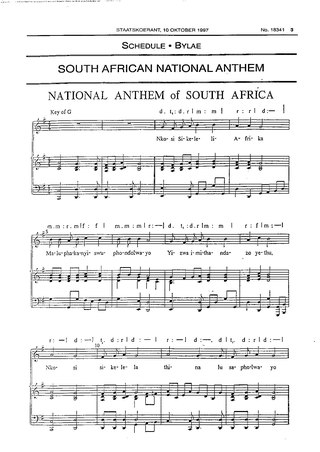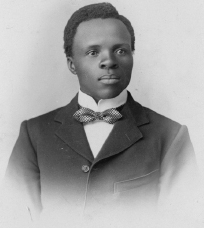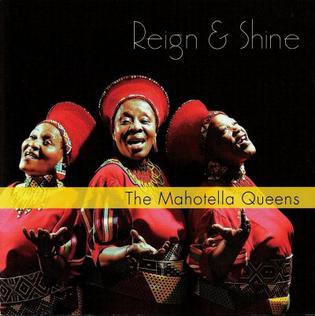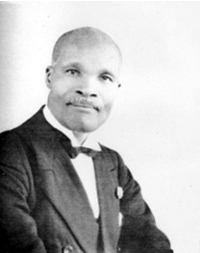
The National Anthem of South Africa was adopted in 1997 and is a hybrid song combining extracts of the 19th century Xhosa hymn "Nkosi Sikelel' iAfrika" and the Afrikaans song which was used as the South African national anthem during the apartheid era, "Die Stem van Suid-Afrika", with new English lyrics.

"Mungu ibariki Afrika" is the national anthem of Tanzania. It is a Swahili language version of Enoch Sontonga's popular hymn "Nkosi Sikelel' iAfrika".

Solomon Tshekisho Plaatje was a South African intellectual, journalist, linguist, politician, translator and writer. Plaatje was a founding member and first General Secretary of the South African Native National Congress (SANNC), which became the African National Congress (ANC). The Sol Plaatje Local Municipality, which includes the city of Kimberley, is named after him, as is the Sol Plaatje University in that city, which opened its doors in 2014.
"Stand and Sing of Zambia, Proud and Free" is the national anthem of Zambia. The tune is taken from the hymn "Nkosi Sikelel' iAfrika", which was composed by Xhosa composer Enoch Sontonga, in 1897. The lyrics were composed after Zambian independence to specifically reflect Zambia, as opposed to Sontonga's lyrics, which refer to Africa as a whole.

Die Stem van Suid-Afrika, also known as "The Call of South Africa" or simply "Die Stem", is a former national anthem of South Africa. There are two versions of the song, one in English and the other in Afrikaans, which were in use early on in the Union of South Africa alongside God Save the Queen and as the sole anthem after South Africa became a republic. It was the sole national anthem from 1957 to 1994, and shared co-national anthem status with "God Save the King/Queen" from 1938 to 1957. After the end of apartheid in the early 1990s, it was retained as a co-national anthem along with "Nkosi Sikelel' iAfrika" from 1994 to 1997, when a new hybrid song incorporating elements of both songs was adopted as the country's new national anthem, which is still in use.

"Nkosi Sikelel' iAfrika" is a Christian hymn originally composed in 1897 by Enoch Sontonga, a Xhosa clergyman at a Methodist mission school near Johannesburg.

"Namibia, Land of the Brave" is the national anthem of Namibia, adopted in December 1991. It was written by Axali Doëseb, who was the director of a traditional music group from the Kalahari desert. Doëseb was chosen to write it after winning a contest held after Namibia became independent in 1990.

Enoch Mankayi Sontonga was a South African composer, who is best known for writing the Xhosa hymn "Nkosi Sikelel' iAfrika", which, in abbreviated version, has been sung as the first half of the national anthem of South Africa since 1994. Previously, it had been the official anthem of the African National Congress since 1925. It was also adopted by South Africa's newly formed northern neighbour, Zimbabwe and translated into Shona, "Ishe Komborera Afrika" from 1980 until 1994.
Bright Blue was a South African band that was prominent on the progressive scene in the final years of apartheid. The band's name "reflected the paradox of being bright in a very blue time" but was also a tribute to Chelsea FC.

The Very Best of Ladysmith Black Mambazo – Rain, Rain, Beautiful Rain is a 2-disc compilation album by the South African isicathamiya group Ladysmith Black Mambazo. It was released in the United Kingdom in November 2004, to coincide with the group's tour of the UK that month.
Paris – Soweto is a 1987 album by the South African mbaqanga group Mahlathini and the Mahotella Queens. The album was recorded just after the group reunited in 1986, and was one of the first albums to be recorded specifically for the international audience. The album was recorded in Paris and released internationally on the Celluloid label, and under the group's long-standing Gallo label in South Africa. The first single, "Kazet" became one of the group's signature tunes.

Reign & Shine is a 2005 album by the South African mbaqanga group the Mahotella Queens. The album was a break from their usual mgqashiyo music, focusing on three-part vocal harmonies and percussion, with electric guitar and bass only appearing on some tracks. The album featured new compositions such as "Amazemula" ("Monster") and "Ndodana Yolahleko" as well as old favourites like "Town Hall" and "Amabhongo" in addition to the South African national anthem, "Nkosi Sikelel' iAfrika".
"Weeping" is an anti-apartheid protest song written by Dan Heymann in the mid-1980s, and first recorded by Heymann and the South African group Bright Blue in 1987. The song was a pointed response to the 1985 State of Emergency declared by President P.W. Botha, which resulted in "large-scale killings of unarmed and peaceful demonstrators against racial discrimination and segregation in South Africa." Defiantly, the song incorporated part of the melody to Nkosi Sikelel' iAfrika, the anthem of the anti-apartheid African National Congress. "Nkosi Sikelel' iAfrika" was banned at the time, and inclusion of even the melody violated the law. Today, "Nkosi Sikelel' iAfrika" is part of the national anthem of South Africa. The formerly illegal lyrics—"Nkosi sikelela, thina lusapho lwayo"—are now often sung when "Weeping" is recorded or performed.
In February 2008 the South African government started a public participation process to create a pledge of allegiance to be recited daily by schoolchildren. The draft pledge was based on the preamble of the Constitution of South Africa.

Samuel Edward Krune Mqhayi was a Xhosa dramatist, essayist, critic, novelist, historian, biographer, translator and poet whose works are regarded as instrumental in standardising the grammar of isiXhosa and preserving the language in the 20th century.

Spirit of Africa is the first studio album by African traditional and contemporary male voice choir Kenyan Boys Choir. As of July 2009, one single has been released: "Homeless". All tracks were recorded in the city of Nairobi, Kenya.

Since unification in 1910, South Africa has used a range of national symbols to identify the country: coats of arms, official seals, flags, national anthems, and floral, bird, animal, and other emblems.
"Aberystwyth" is a hymn tune composed by Joseph Parry, written in 1876 and first published in 1879 in Edward Stephen's Ail Lyfr Tonau ac Emynau. Parry was at the time the first professor and head of the new department of music at the recently founded University College Wales, Aberystwyth, now called Aberystwyth University.

Voice of Hope is a 2014 album by South African opera singer Pumeza Matshikiza. The album was released on Decca Records.
Nkosi is a Nguni word for “king”, “chief“ and ”lord”.












